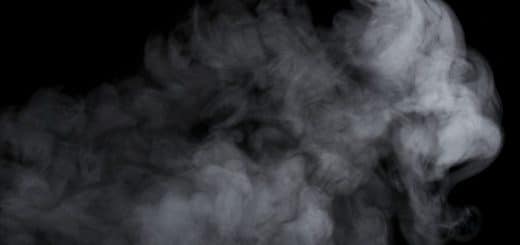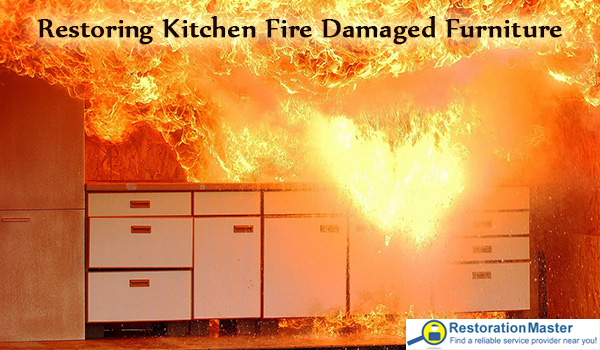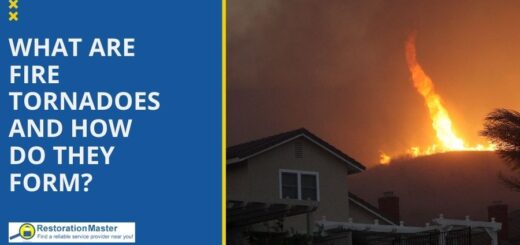Avoid House Fires in the Spring and Summertime
Few disasters can cause the level of devastating damage to a home that is caused by fires. A house fire can happen at virtually any time, and it can quickly burn through the property, resulting in immense, widespread damage while also putting lives at risk. It is important for homeowners to keep fire safety in mind year-round, including in the spring and summer and call fire restoration professionals in need.
Most house fires occur during the holiday season in November and December, mainly due to holiday decorations and excessive cooking that is common on holidays like Thanksgiving and Christmas. While house fires tend to be less common during the spring and summer, they are still a hazard as there are seasonal conditions and activities that can cause fires when safety precautions are not taken. In this guide, we will cover the most common causes of house fires during the spring and summer and what you can do to reduce the risk of house fires and protect yourself and your property.
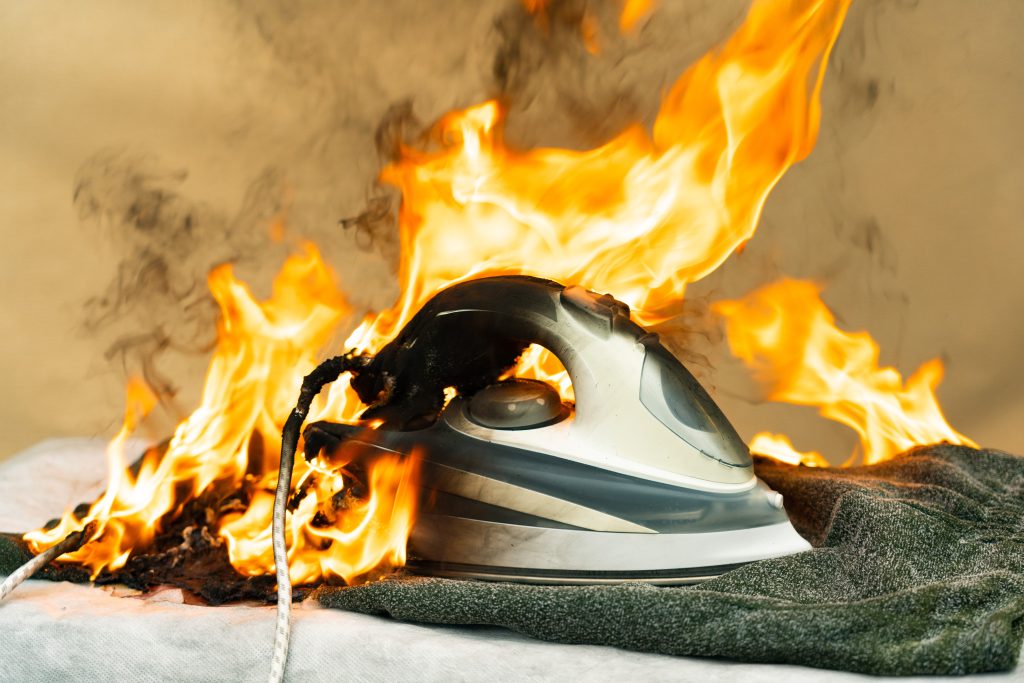
Causes of House Fires in the Spring and Summer
Hot, dry conditions and activities such as barbecuing, fireworks, and bonfires create the right conditions for a fire to occur. When engaging in any of these activities during the spring and summer, it is important to be aware of the potential for a fire so you can take the right precautions to keep yourself and others safe.
The following are the main causes of fires in the spring and summer:
- BBQs and outdoor cooking: Regardless of the time of year, cooking is the leading cause of house fires, accounting for nearly half of all fires. The risk of a fire from indoor cooking is still there in the spring and summer with the added risk of fires from outdoor cooking. Barbecues are common for summer holidays like Memorial Day and the Fourth of July and fires can occur if grills are not used safely. Outdoor cooking fires generally occur when charcoal and propane grills are mishandled.
- Dry and hot weather conditions: In some areas of the U.S., the high temperatures of the summer are accompanied by dry conditions. While hot and dry conditions do not necessarily cause fires, a fire can more easily start and spread in these conditions. Hot weather causes moisture to evaporate faster, leaving soil and vegetation dry and more vulnerable to becoming fuel for a fire.
- Electrical appliances and faulty wiring: During the summer, homeowners rely on their air conditioners to maintain a comfortable living environment. If there is a problem with the air conditioning system, this could result in an electrical fire. Other appliances around the home can also start a house fire if there is a malfunction or short circuit.
- Fireworks: It is common for people to play with fireworks during the summer, especially around the Fourth of July. Fires caused by fireworks peak in the middle of the summer as it is easy for errant fireworks to spark indoor and outdoor fires.
- Combustible mulch: Some homeowners spend the spring working on the landscape around their home, including laying new mulch for the season. However, certain types of mulch may be combustible and ignite easily from something as small as a firecracker or cigarette butt.
- Outdoor electrical outlets: As people spend more time outside during the spring and summer, they will use their outdoor electrical outlets more than in other seasons. The risk of fires from outdoor outlets increases when people go beyond the recommended watt usage of the outlet by plugging in too many things.
- Fuel containers: People grill more often during the spring and summer and whether you use a charcoal or propane grill, you will likely have containers of fuel around your property, including lighter fluid and propane. Propane leaks and spilled lighter fluid increase the risk of property fires.
- Candles and tiki torches: The use of candles and tiki torches in your backyard not only adds to the ambience of your outdoor living spaces, but they can also help keep the bugs away. However, they are a fire hazard as a gust of wind can blow over a lit tiki torch and start a fire.
- Lightning: Thunderstorms are more likely to occur in the spring and summer which increases the risk of a property fire caused by lightning. Lightning bolts are hot enough to ignite roofing and vegetation and start a fire.
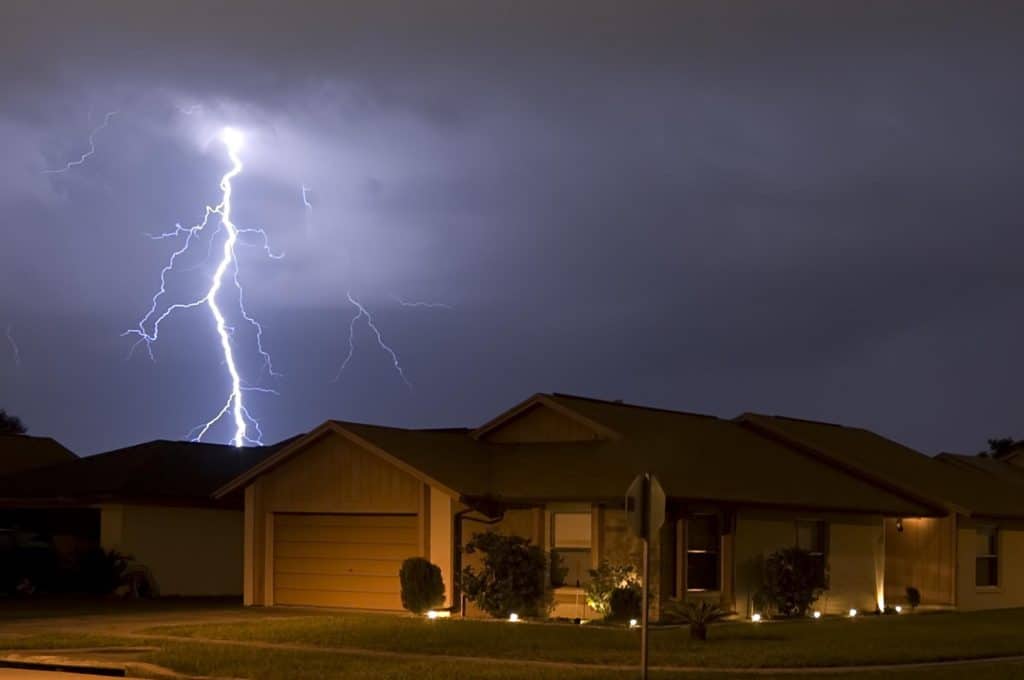
Prevention Tips for House Fires in the Spring and Summer
While there are many potential causes of house fires unique to the spring and summer season, the good news is that these fires are largely preventable. Taking a little extra time to implement fire safety measures can prevent property fires that could leadLead is a heavy metal that can be toxic to humans, especiall... More to costly fire damage restoration and put lives at risk.
The following fire safety tips will help you prevent fires in the spring and summer:
- General home fire safety tips: Homeowners should follow general home fire safety tips year-round that include being attentive while cooking, installing smoke detectors on each floor and testing them regularly, inspecting the electrical system to avoid issues, smoking outside, being attentive when burning candles, and having working fire extinguishers on each floor of the home.
- Outdoor cooking safety tips: As mentioned above, both propane and charcoal grills are fire hazards. When grilling, make sure to keep your grill at least 3 feet from surrounding structures and trees or shrubs. Use the proper amount of fuel or charcoal and never leave a lit grill unattended. Be careful of flare ups when grilling food that is high in fat and do not throw away charcoal until it has completely cooled.
- Electrical safety tips: You should have the electrical system within your home inspected in the early spring to ensure that it is ready to handle the air conditioning system and sump pump if you have one. You should also make sure to avoid overloading outdoor electrical outlets and stop using an outlet if it is warm or hot to the touch when in use.
- Fireworks safety tips: If you plan on including fireworks in your Fourth of July celebration, you should first make sure that you do not use any fireworks that are illegal in your state. When lighting off fireworks, stay as far away as possible from your house and other structures as well as trees and shrubs. Consider having a fire extinguisher handy in case the fireworks do start a small fire.
- Use non-combustible mulch: If you are laying down new mulch for the spring and summer, use non-combustible mulch. It may cost a few more dollars, but it can save you thousands in repairs if a fire occurs.
- Candle, tiki torch, and firepit safety: Whenever there is a lit flame in your yard, whether from a tiki torch or firepit, you need to exercise caution. Never leave a lit flame or fire unattended and make sure all fires are out completely before going inside.
What to Do in Case of a Fire
Even when taking every possible precaution to prevent fires, there is still a chance that a fire can occur. Fires spread very quickly, and they put your safety and property in danger. Knowing what to do when a fire occurs will ensure the safety of you and your family and limit the resulting damage.
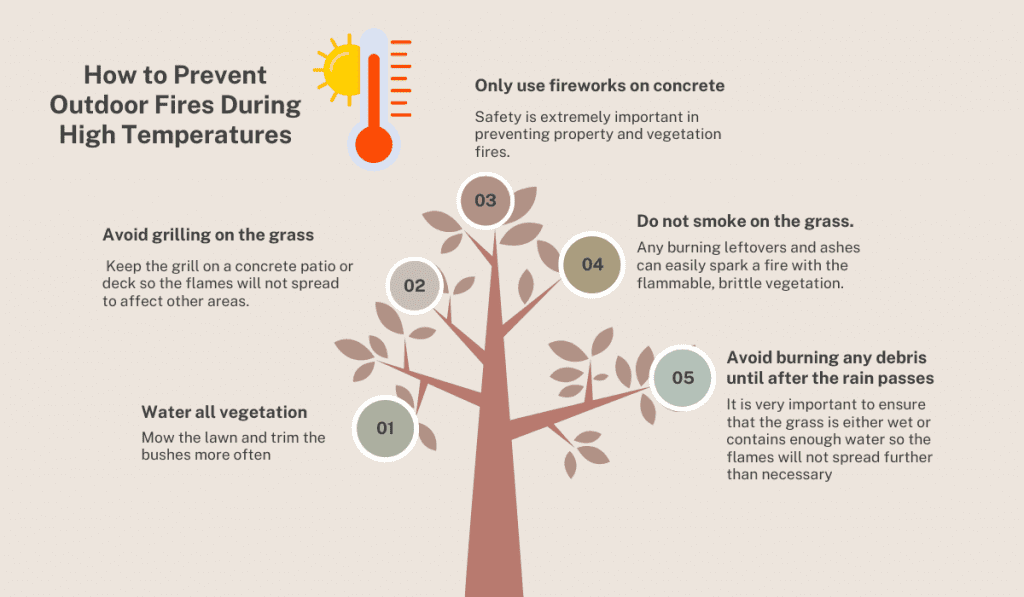
Importance of Having a Fire Escape Plan
When a fire occurs, the first thing you should do is evacuate the property. The quicker you and your family evacuate when a fire occurs, the less likely anyone is to suffer an injury or worse. The following tips will help you form an effective fire escape plan:
- Make an escape plan with your family. Identify all possible escape routes and exits through windows and doors and draw a floor plan that includes at least two different ways to escape each room. Planning out the escape routes with your family will ensure that everyone knows where to go.
- Make sure there are fire alarms on every floor and within every sleeping room.
- Check your planned escape routes and make sure they are cleared of obstacles and that the doors and windows can be opened easily.
- Designate a meeting place outside your home where your family will meet up after escaping.
- Make sure your house number is clearly visible from the street. You can paint your house number on the curb to make sure that emergency responders can see it.
- Everyone should know the emergency number to call the fire department when the fire occurs. Evacuate the home first and call from outside the home either from a cellphone or neighbor’s phone.
- If there are small children or seniors in your household, designate family members to help each of them out during an escape. You should also assign a backup for each person in case someone isn’t home when a fire occurs.
- Stay out of your home once you have escaped. Reentering a home can be very dangerous. If there is someone who may still be inside the home, notify the firefighters immediately.
After you have created a fire escape plan, make sure that everyone in your family understands the plan and practice the plan with them.

What to Do if a Fire Breaks Out
When a fire breaks out, you cannot hesitate to act as the difference of even a few seconds can save your life. The first thing you can do if the fire is small and contained is to try to put it out with a fire extinguisher. If the fire is too big to put out yourself, you should follow these steps to evacuate the home:
- If there is smoke, crawl beneath the smoke to escape. Inhaling too much smoke can cause you to go unconscious.
- Before opening a door, touch the door and doorknob to check if they are warm. If they are, there is likely a fire on the other side of the door, and you should find another exit.
- Once you get out of the house, run until you are a safe distance away and meet up with our family at your designated meeting place.
- Call 911 as soon as possible after you have ensured your safety.
If you are trapped in your home, cover the vents and cracks around the door of the room that you are in with blankets, towels, and anything else you can find. This will help prevent smoke from seeping in. You can also wet the towels and blankets, if possible, which will help better block the smoke. If you have a phone, call 911 and let them know where you are stuck in the home. If you are stuck on an upper floor, open a window and wave a blanket or towel out the window that is big enough to get attention.
How to Use a Fire Extinguisher
If a small fire breaks out within your home that is contained, you may be able to put the fire out yourself and prevent more severe damage by using a fire extinguisher. You should make sure that there are fire extinguishers in your home and know how to use them. When using a fire extinguisher, follow the steps of the PASS method:
- Pull: Pull the pin to break the seal.
- Aim: Aim the nozzle at the base of the fire.
- Squeeze: Squeeze the handle to spray the extinguishing agent.
- Sweep: Sweep from side to side, spraying the base of the fire until the fire is out.
If you do not believe that you can put out the fire with a fire extinguisher, then evacuate the home immediately.
House Fires FAQ
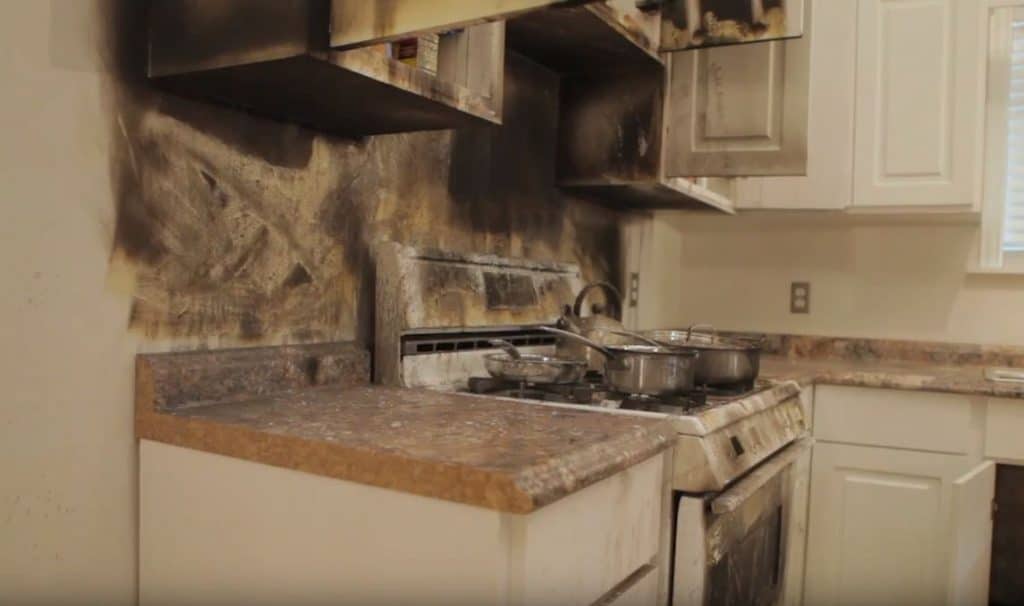
Are house fires more common in the summer?
House fires are more common in the winter as most house fires occur as a result of holiday decorations and cooking accidents. However, fires can still occur in the summer, so homeowners should always practice good fire safety.
What causes most house fires in the summer?
No matter the time of year, cooking is the number one cause of house fires. In the summer, this includes grill fires as thousands of fires are caused by grilling each year. The other top causes of fires in the summer include electrical fires from running the air conditioner and fires caused by fireworks.
What are the early signs of a house fire?
Recognizing the start of a fire in your home will help you evacuate faster. The first sign of a fire you may notice is the sound of a smoke detector or fire alarm. Other early signs include smoke and an odorAn odor is a smell, often detectable by the human nose, whic... More of something burning. You should investigate when you hear your smoke detector going off and if you see or smell smoke, there is a good chance that a fire has already started.
What part of the house do most fires start?
More fires start in the kitchen than in any other area of the home. This is because cooking is always the top cause of house fires. Another leading cause of house fires is heating sources, including stoves.
Protect Your Home from Fires This Summer
Many people enjoy the spring and summer by getting out of the house more, spending time in their outdoor spaces, and having friends and family over for cookouts. Following the spring and summer fire safety tips outlined above will help ensure that your summer festivities stay safe. You should take the time to review basic fire safety tips with your family and have a fire escape plan so that everyone can make it out safely in case of a fire.
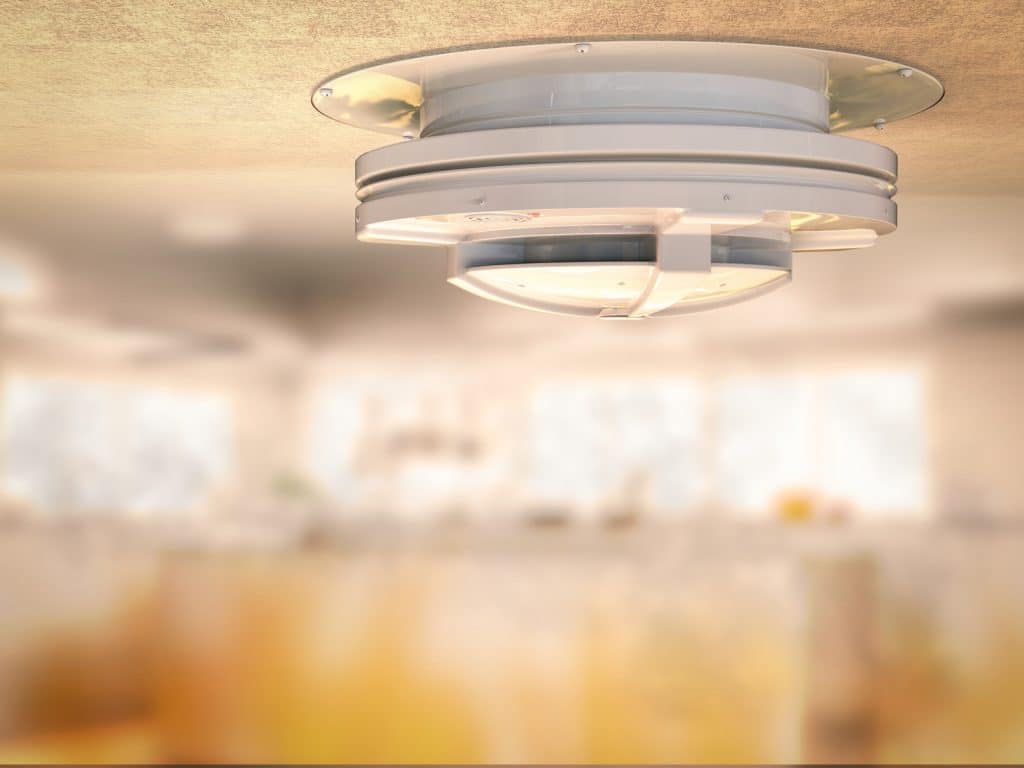
Even with good fire preventionPrevention refers to actions taken to reduce the likelihood ... More practices, fires can still happen. When a fire occurs, you need to first make sure that everyone safely evacuates and then call the fire department to respond to the fire. After the fire department has extinguished the fire and cleared your property, you will be left responsible for the resulting fire damage.
The damage does not stop once the fire is out as smoke, sootSoot is fine black particles composed of carbon and other ma... More, and other corrosive byproducts will continue to spread and cause damage throughout your property. In many cases, the smoke damage is more extensive than the damage caused by the fire itself. You need to call a trusted fire damage restoration professional as soon as the fire is put out to limit the damage and start the restorationRestoration is the process of returning a property to its pr... More process. Professionals that provide fire damage cleanup can handle every step of the process from rebuilding structural damage to cleaning smoke and sootSoot is fine black particles composed of carbon and other ma... More.










